How many wars has President Trump really ended?
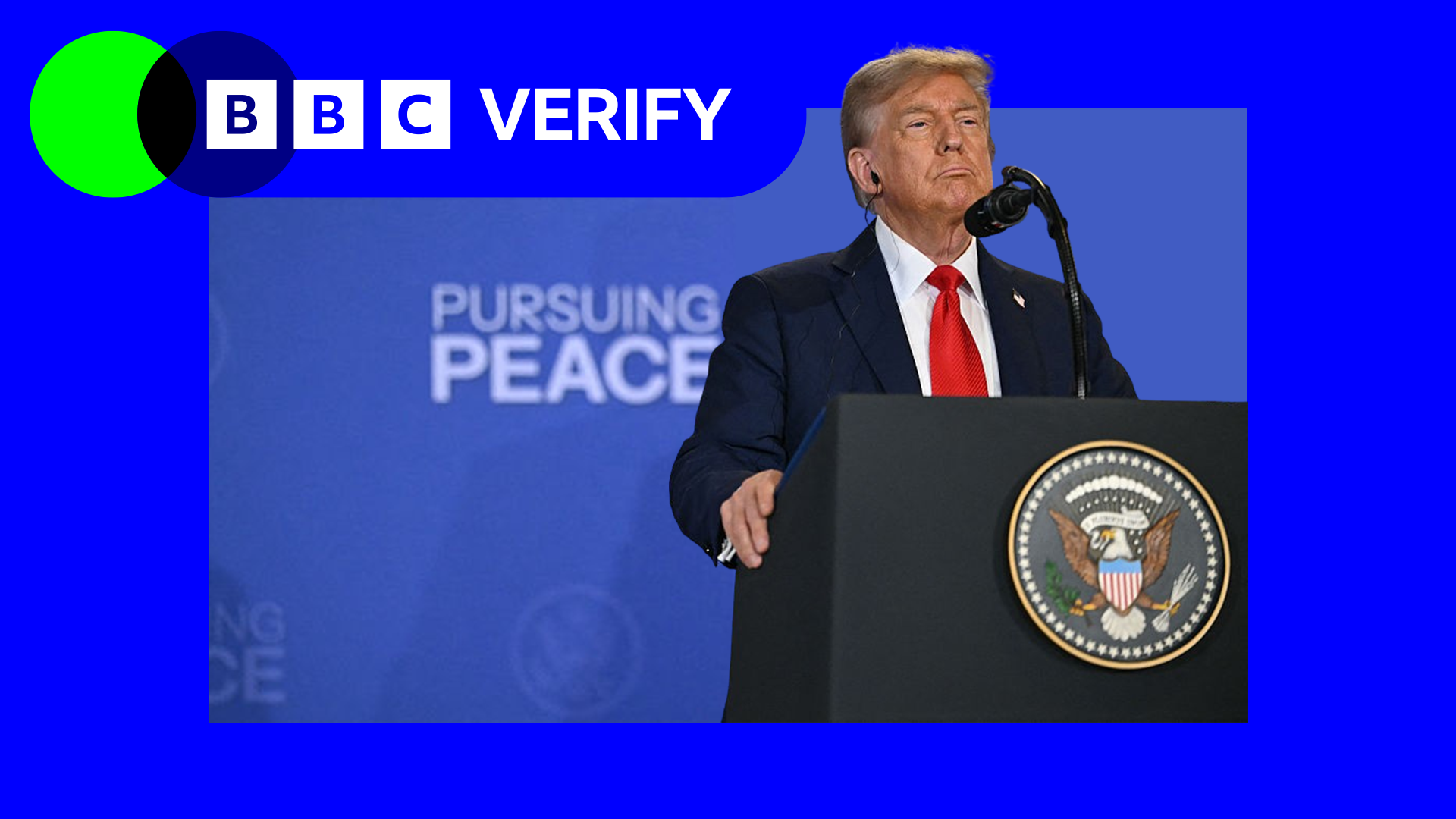
- Published
President Trump has claimed that he has "ended 8 wars in just 8 months" in a social media post with the title "the president of peace".
His latest addition to his list of wars "ended" is the two-year conflict between Israel and Hamas.
The other seven were between Israel and Iran, Pakistan and India, Rwanda and the Democratic Republic of Congo, Thailand and Cambodia, Armenia and Azerbaijan, Egypt and Ethiopia, and Serbia and Kosovo.
A number of these conflicts lasted just days, although they were the result of long-standing tensions - and one of them had no fighting to end.
It is also unclear whether some of the peace agreements will last.
BBC Verify has taken a closer look at the conflicts and how much credit the president can take for ending them.
Israel and Hamas
President Trump has received widespread praise for his role in brokering a ceasefire between Israel and Hamas, involving the exchange of Israeli hostages for Palestinian prisoners.
But a lasting peace still requires a number of difficult issues to be resolved, including Hamas giving up its weapons and the establishment of a new government in Gaza.
"It is a big but very fragile accomplishment," argues Michael O'Hanlon, a defence and foreign policy expert at the Brookings Institution think tank.
He says Trump does deserve credit for being willing to push Israel more than previous US leaders.
"However, this is only stage one and getting to a two-state solution will be even harder. If he pulls that off, he and anyone else key to the success do deserve the Nobel Peace Prize someday," he adds.
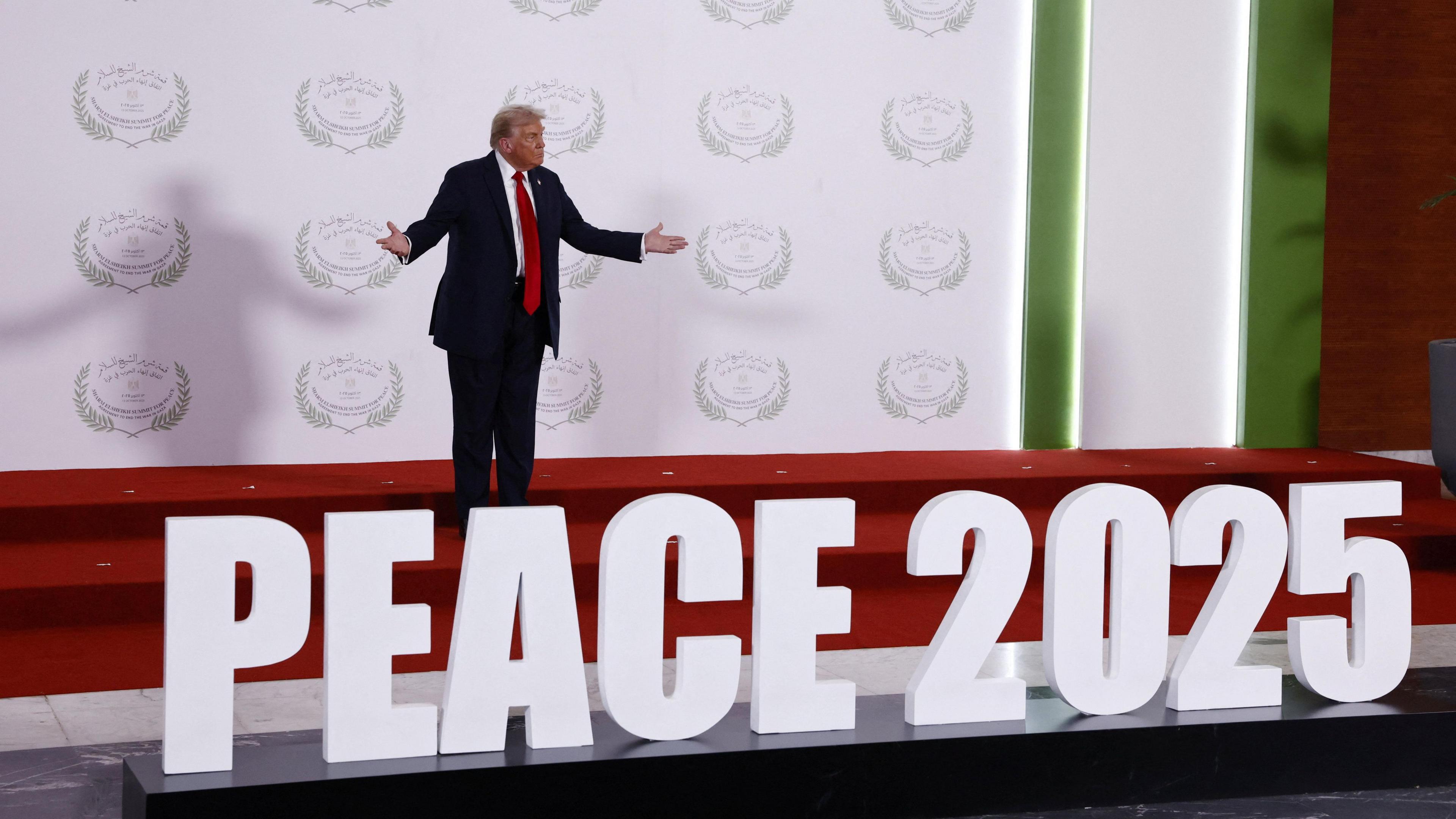
President Trump on stage at Gaza peace summit in Egypt
Trump's 20-point Gaza peace plan in full
- Published9 October
Israel and Iran
The 12-day conflict began when Israel hit targets in Iran on 13 June.
Trump confirmed that he had been informed by Israeli Prime Minister Benjamin Netanyahu ahead of the strikes.
The US carried out strikes on Iranian nuclear sites - a move widely seen as bringing the conflict towards a swift close.
On 23 June, Trump posted: "Officially, Iran will start the CEASEFIRE and, upon the 12th Hour, Israel will start the CEASEFIRE and, upon the 24th Hour, an Official END to THE 12 DAY WAR will be saluted by the World."
After the hostilities ended, Iran's Supreme Leader Ayatollah Ali Khamenei insisted his country had secured a "decisive victory".
Israel has since suggested it could strike Iran again to counter new threats.
"There is no agreement on a permanent peace or on how to monitor Iran's nuclear programme going forward," argues Mr O'Hanlon.
"So what we have is more of a de facto ceasefire than an end to war, but I'd give him some credit, as the weakening of Iran by Israel - with US help - has been strategically significant."
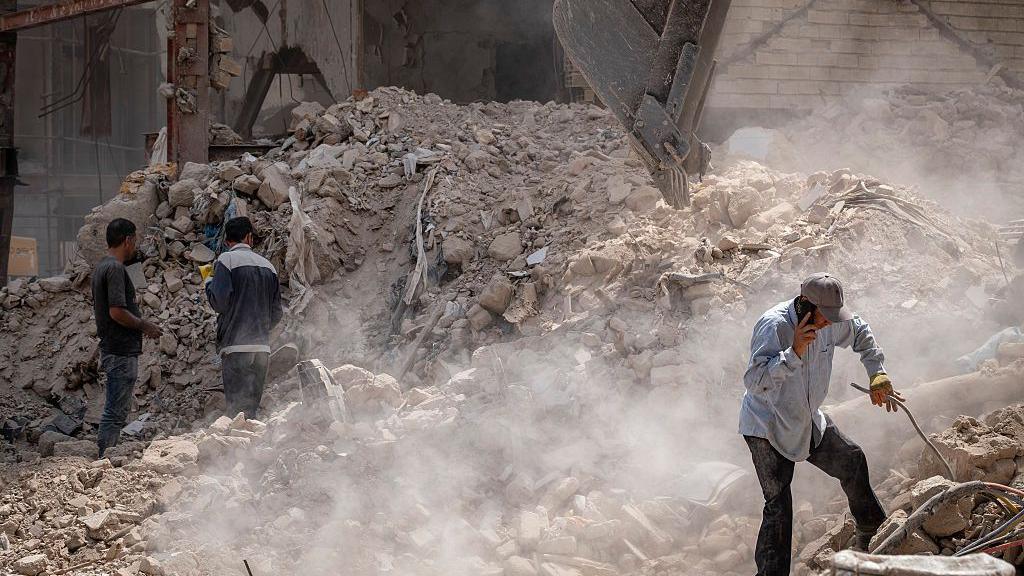
Targets in Iran and Israel were hit during 12 days of conflict
Pakistan and India
Tensions between these two nuclear-armed countries have existed for years, but in May hostilities broke out following an attack in Indian-administered Kashmir.
After four days of strikes, Trump posted that India and Pakistan had agreed to a "FULL AND IMMEDIATE CEASEFIRE".
He said this was the result of "a long night of talks mediated by the United States".
Pakistan thanked Trump and later recommended him for the Nobel Peace Prize, citing his "decisive diplomatic intervention".
India, however, played down talk of US involvement: "The talks regarding cessation of military action were held directly between India and Pakistan under the existing channels established between both militaries," Indian Foreign Secretary Vikram Misri said.
Rwanda and the Democratic Republic of Congo
Long-standing hostilities between these two countries flared up after the M23 rebel group seized mineral-rich territory in eastern DR Congo earlier in the year.
In June, the two countries signed a peace agreement in Washington aimed at ending decades of conflict. Trump said it would help increase trade between them and the US.
The text called for "respect for the ceasefire", external agreed between Rwanda and DRC in August 2024.
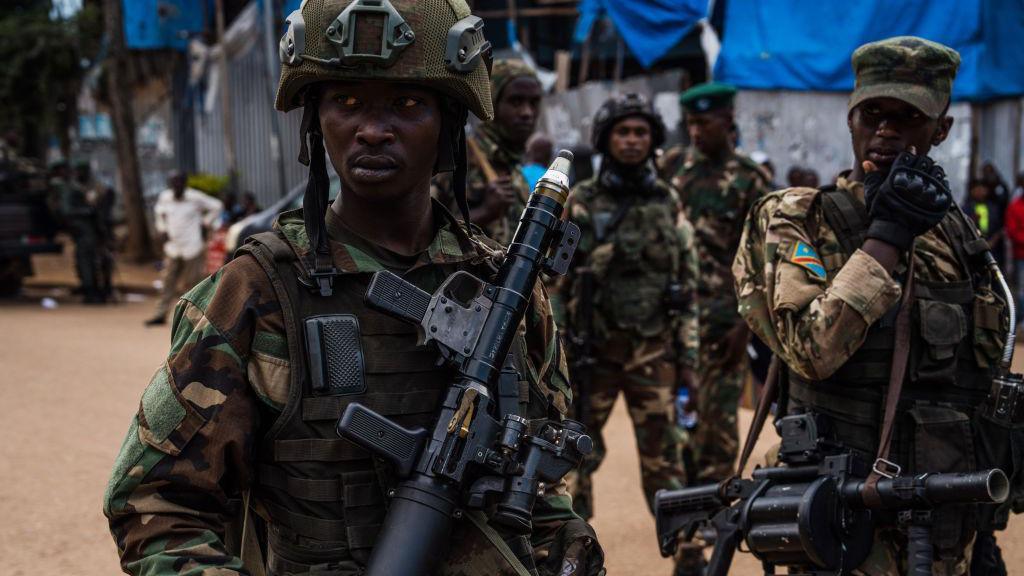
M23 rebels have been linked to Rwanda
Since the latest deal, both sides have accused each other of violating the ceasefire and the M23 rebels - which the UK and US have linked to Rwanda - have threatened to walk away from peace talks.
In July, the rebel group killed at least 140 people, including women and children, in eastern DR Congo, according to Human Rights Watch.
"There's still fighting between Congo and Rwanda - so that ceasefire has never really held," says Margaret MacMillan, a professor of history who taught at the University of Oxford.
Thailand and Cambodia
On 26 July, Trump posted on Truth Social saying: "I am calling the Acting Prime Minister of Thailand, right now, to likewise request a Ceasefire, and END to the War, which is currently raging."
A couple of days later, the two countries agreed to an "immediate and unconditional ceasefire" after less than a week of fighting at the border.
Malaysia held the peace talks, but President Trump threatened to stop separate negotiations on reducing US tariffs (taxes on imports) unless Thailand and Cambodia stopped fighting.
Both are heavily dependent on exports to the US.
On 7 August, Thailand and Cambodia reached an agreement aimed at reducing tensions along their shared border.
Armenia and Azerbaijan
The leaders of both countries said Trump should receive the Nobel Peace Prize for his efforts in securing a peace deal, announced at the White House on 8 August.
"I think he gets good credit here - the Oval Office signing ceremony may have pushed the parties to peace," says Mr O'Hanlon.
In March, the two governments had said they were ready to end their nearly 40-year conflict centred on the status of Nagorno-Karabakh.
The most recent, serious outbreak of fighting was in September 2023 when Azerbaijan seized the enclave (where many ethnic Armenians lived).
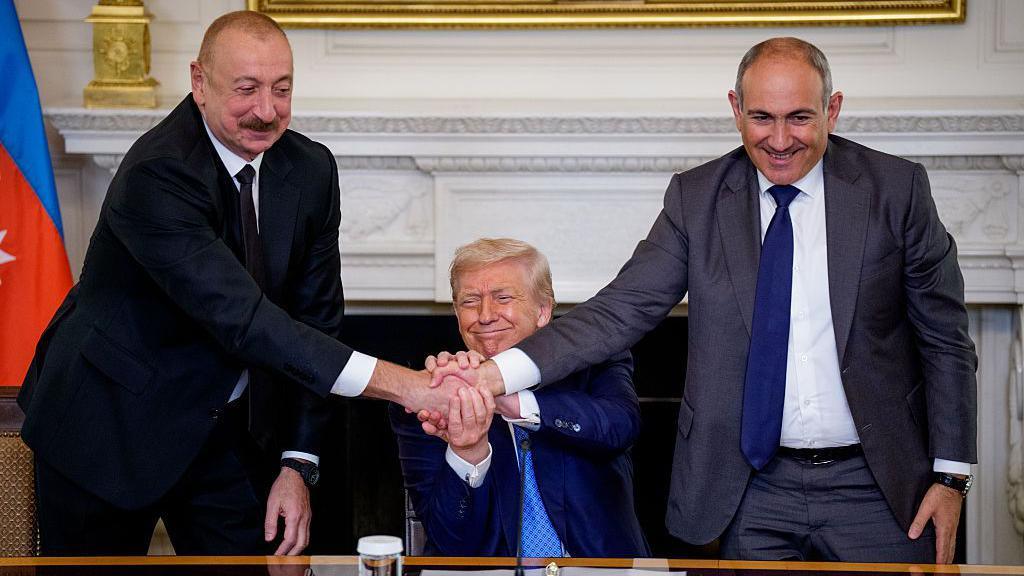
In August Trump hosted the Azerbaijani president and Armenian prime minister at the White House
Egypt and Ethiopia
There was no "war" here for the president to end, but there have long been tensions over a dam on the River Nile.
Ethiopia's Grand Ethiopian Renaissance Dam was completed this summer with Egypt arguing that the water it gets from the Nile could be affected.
After 12 years of disagreement, Egypt's foreign minister said on 29 June that talks with Ethiopia had ground to a halt.
Trump said: "If I were Egypt, I'd want the water in the Nile." He promised that the US was going to resolve the issue very quickly.
Egypt welcomed Trump's words, but Ethiopian officials said they risked inflaming tensions.
No formal deal has been reached between Egypt and Ethiopia to resolve their differences.
Ethiopia outfoxes Egypt over the Nile's waters with its mighty dam
- Published7 September
Serbia and Kosovo
On 27 June, Trump claimed to have prevented an outbreak of hostilities between them, saying: "Serbia, Kosovo was going to go at it, going to be a big war. I said you go at it, there's no trade with the United States. They said, well, maybe we won't go at it."
The two countries have long been in dispute - a legacy of the Balkan wars of the 1990s – with tensions rising in recent years.
"Serbia and Kosovo haven't been fighting or firing at each other, so it's not a war to end," Prof MacMillan told us.
The White House pointed us towards Trump's diplomatic efforts in his first term.
The two countries signed economic normalisation agreements in the Oval Office with the president in 2020, but they were not at war at the time.
Additional reporting by Peter Mwai, Shruti Menon and Eve Webster.
